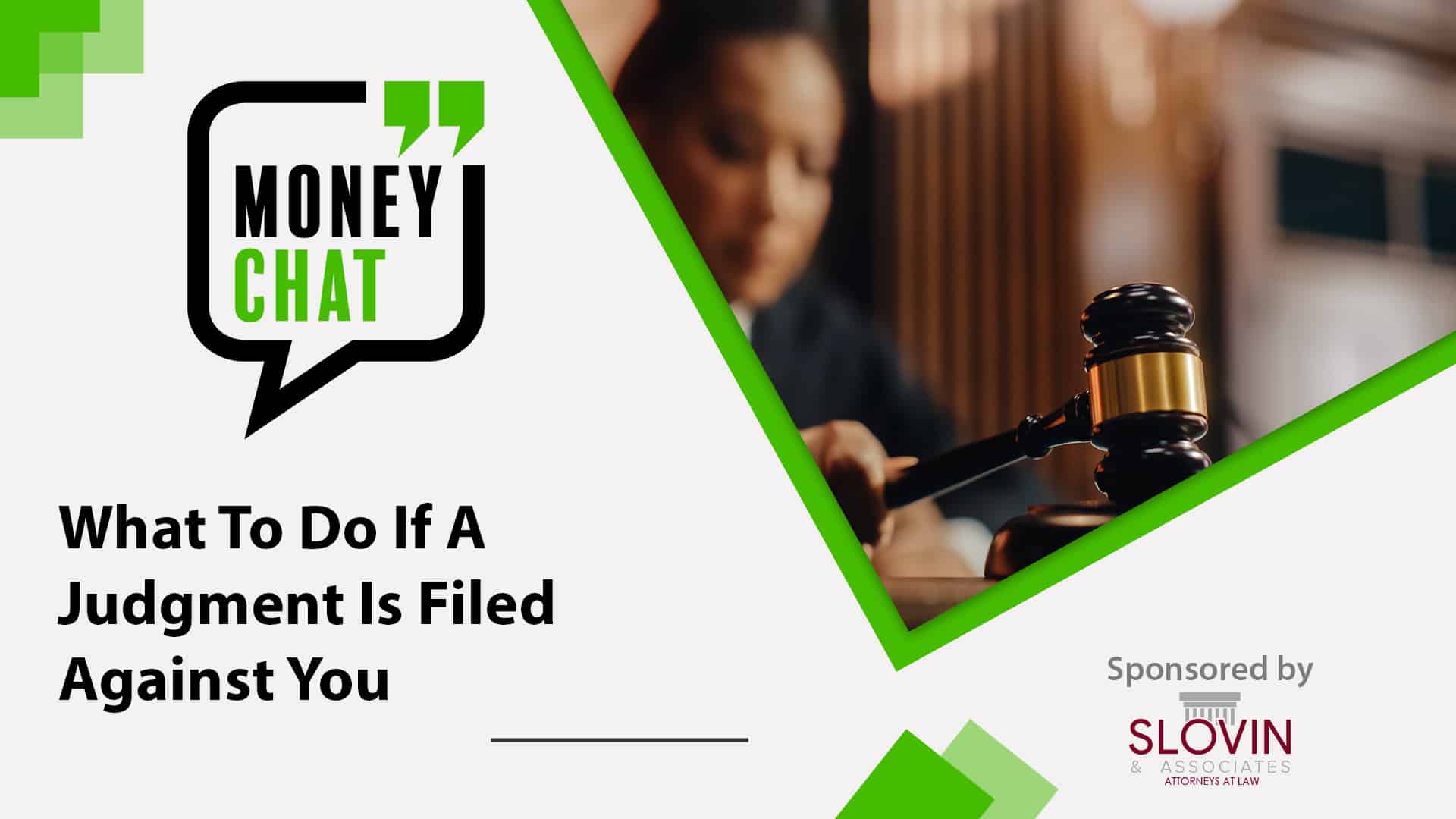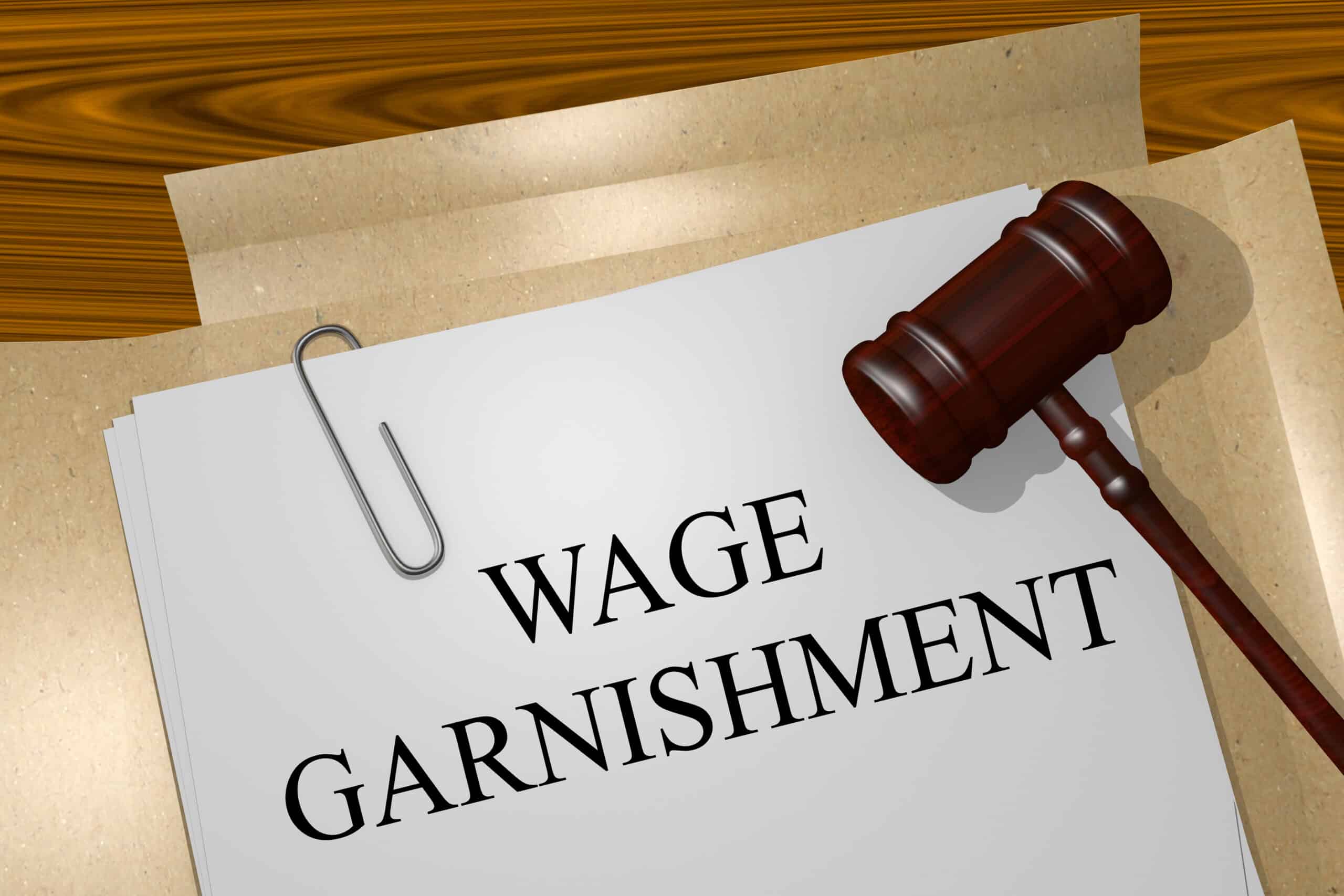
What To Do If A Judgment Is Filed Against You
Facing a judgment order filed against you can be a daunting experience, but it’s essential to understand what it means and how to navigate the situation effectively. With dozens of different laws, regulations, and terms to understand related to the term “judgment,” and what it means to the average consumer once a judgment is filed, it is vital to understand the basics of what this means and what to do about it.
In this Money Chat, we will help you understand what a judgment is, how to avoid a judgment, and what to do if a judgment is filed against you.
What Is a Judgment?
A judgment is a legal ruling by a court that declares a defendant (consumer) owes a specific amount of money to a creditor (plaintiff). This typically happens when a consumer has neglected to repay a debt, and the creditor takes legal action (sues the consumer) to recover what they are owed.
Keep in mind that while a judgment order may be the conclusion of being sued for a debt, it is not necessarily inevitable. Be sure to contact the collection firm if you think your account has reached the point of litigation, as there may still be an opportunity to resolve the account and avoid a judgment.
While a judgment is typically for the current balance (original debt plus accrued interest) of existing debt owed to the creditor, a judgment may increase the total amount of money owed as a court often allocates continually accruing interest at the standard state rate, plus court fees, if applicable, into the judgment amount. In other words, some of the “cost to collect” becomes factored into the total amount owed.

Default Judgment
In general terms, there are two specific forms of a judgment. One is called a default judgment, or a judgment order awarded to a creditor to collect unpaid debts when the consumer fails to respond to the complaint within the time allotted on the summons with which they were served.
If you received a summons and complaint on unpaid debts and ignored the summons, a judge may order a default judgment against you, giving the creditor more tools to collect on monies owed. (As a general guideline, it’s important not to ignore legal notices regarding a debt.)
“Standard” Judgment
The plaintiff (creditor suing for the debt owed) will be represented by an attorney. If you respond to the summons and the judge still grants the requested judgment against you, it may sometimes come with fewer penalties than a default judgment, though not necessarily.
When appearing in court, it is best to be prepared with all relevant documents for your response. You may choose to hire an attorney to represent you. You may be able to get free or reduced-fee legal help if you have a low income. To find a legal aid organization near you, use the Legal Service Corporation’s search tool or browse the legal resources provided by the American Bar Association.
How Do Firms Collect on Judgments?
A judgment order is typically enforced through garnishments or levies. It’s important to note that garnishments and levies are restricted in certain locations and states, so you may want to research your state to see whether or not this could become applicable to your case.
Garnishments and levies can generally be prevented by cooperatively working with the creditor to willfully resolve the debt before legal enforcement becomes the only option

A wage garnishment is as it sounds: the collection firm takes a portion of the consumer’s (defendant’s) paycheck directly from their employer until the debt has been paid to the creditor (plaintiff).
*Garnishments do not apply to every case. It’s important to be in touch with your case’s creditor or collection law firm if you are concerned about a potential garnishment.
Levies & Liens
A levy is a legal seizure of an asset to serve as immediate collateral for a debt. A lien is a claim against an asset to secure eventual repayment of a debt.
The standard lien is against a defendant’s real property. If your home has a lien, this means the home cannot be sold without satisfying the judgment and removing the lien through payment of the debt.
It’s crucial to avoid levies and liens whenever possible, as they can become an obstacle not just for you but for anyone else named on the deed or title of the home or other property.
Another form of levy is a bank levy, which means money can be seized as payment directly from an account. Again, this may affect not just the defendant but whoever shares the bank account.
*Levies and liens do not apply to every case. It’s important to be in touch with your case’s creditor or collection law firm if you are concerned about a potential levy or lien.


Contact the Collection Firm
If a judgment has been filed against you, the first step is to contact the collection firm responsible for pursuing the debt. Open communication is critical in this situation. Discuss the possibility of reaching a stipulated settlement with a payment plan.
You want to avoid garnishments, liens and levies as much as possible in this situation, as legal enforcement actions can lead to not only complicated finances and living arrangements but a reduced credit score. Many collection firms are willing to work with consumers on payment plans, even after legal action is taken.
Understand the Nuance
The second step you should take, should a judgment be filed, is fairly simple—do some thorough research. Each state has its own set of laws regarding the enforcement of judgments. It’s essential to familiarize yourself with the legal tools that could be used in your state. For example, some states may not allow wage garnishments, while others do. Understanding your state’s regulations will help you prepare for what may come.
Check for any Current Action
Find out if any actions to seize your assets—such as levies, garnishments, or liens—are already in progress. Being aware of ongoing enforcement measures will prevent you from being caught off guard and give you time to respond appropriately.
This is an essential step to take with your research because it can make or break your repayment strategy. If a judgment is filed against you, that judgment can be valid for up to 20 years depending on your state’s specific laws. Having a clear understanding of the actions taken against your credit and your property can help you effectively negotiate with the collection agency working to collect your unpaid debt.
Gather Reliable Information
Beware of unreliable information found on the internet. Seek guidance from reputable sources such as Know My Debt by ACA International, and Consumer Resources by the Receivables Management Association International (RMAI). Reliable information is essential to making well-informed decisions. While this article gives you the foundation for what to do if a judgment is filed against you, it’s important to seek other sources of information specific to your state and situation.
Not all judgments are filed the same, and some even have specific clauses for when and how the money can be collected. While keeping an open line of communication with the collector is vital, it’s not your only resource when figuring out what to do.

Keep Detailed Records
If you decide to satisfy or pay off the judgment, ensure that you receive a Satisfaction of Judgment filed with the court. Additionally, request a Paid in Full or Settled in Full letter from the collection firm. These documents will serve as proof that you have resolved the debt.
Judgments are heavy burdens to your financial future. Many incur heavy credit score penalties, even after being paid. Keeping clear documentation can help you more quickly recover from any lost credit reputation.
Dealing with a judgment filed against you can be challenging, but by following these guidelines, you can better navigate the situation. Remember to communicate openly, understand your rights under state laws, and seek reliable information to make informed decisions.
With the right approach, you can effectively address a judgment and work towards resolving the issue responsibly. Despite challenging situations, financial healing is possible with the right steps forward.
Free Financial Literacy Resources
For guidance on your finances, check out 360 degrees of Financial Literacy by the American Institute of CPAs. To learn more about judgments, wage garnishments, or any other topics regarding credit and debt, please visit other articles in the Receivables Info Money Chat series. In particular, be sure to check out the following related Money Chat articles:
- The Difference Between a Collection Account and a Judgment
- The Three Options Creditors Have If You Don’t Pay Your Debt
- What To Do When an Attorney Contacts You About a Debt
Have an idea for a Money Chat topic?
We want to hear from you! If you have a suggestion for a future Money Chat topic, please email us at [email protected].
The information contained in this article is meant to serve as general guidance for consumers and not meant to serve as comprehensive financial advice. For questions about your individual circumstance, finances, or accounts, please contact your creditor(s) and/or financial advisor directly.
Thank you to our sponsor, Slovin & Associates
Slovin & Associates, Co., LPA aims to achieve the highest rating for creditors’ rights law firms in Ohio, Kentucky, and Indiana by obtaining expeditious and cost-efficient results in a professional and low-maintenance environment for their clients in the fields of collections, commercial and consumer litigation, bankruptcy, leasing and landlord-tenant law, and Fair Debt consulting.









